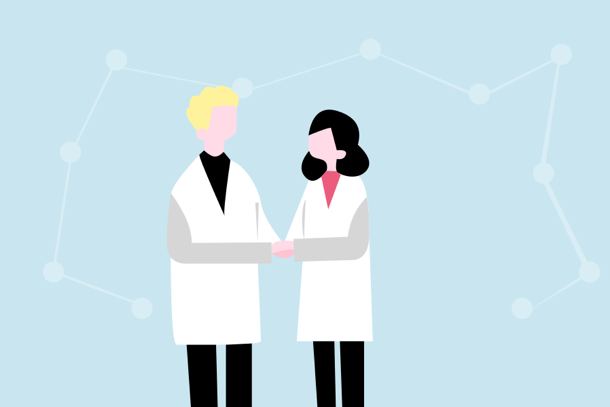成人英语作文要求考生综合运用英语语法、词汇、拼写、表达能力及其他方面的知识和技能。这不仅仅是对考生英语水平的考试,也体现了考生的综合语言能力,包括表达想法、整理文章结构、使用适当的句型和表达方式等。

1. 第1章: Technology in Our Lives (科技融入我们的生活)
In today's rapidly evolving world, technology plays an indispensable role in our lives. This can be seen in the way we communicate, learn, and work. Technology's presence is both a boon and a bane, and it's imperative to weigh its benefits and drawbacks.
Technology's Advantages:Technology enhances communication, allowing us to connect with people worldwide. It aids medical diagnosis and treatment, making them more precise. Online learning and remote work have also prospered due to technology.
Challenges Posed by Technology:Excessive use of smartphones and social media can lead to loneliness and addiction. Furthermore, the rapid pace of technological advancement raises concerns about privacy and security.
In conclusion, technology is indispensable in modern society. It's crucial to use technology wisely, reaping its benefits while mitigating the potential drawbacks it may bring.
2. 第2章: Environmental Conservation (环保)
Environmental conservation is a pressing concern that demands our attention. With the increasing global population and rapid industrialization, environmental issues have become a worldwide problem.
The Benefits of Environmental Conservation:Environmental conservation reduces pollution, preserves natural resources, and maintains ecological balance. It also improves human health and mitigates climate change.
How to Engage in Environmental Conservation:Conserving energy and water resources, reducing waste, promoting sustainable development, planting trees, and supporting environmental policies are some ways to engage in conservation.
Individual Responsibility:Every individual has a responsibility to protect the environment. Small actions like reducing plastic usage and practicing waste separation can have a positive impact.
In summary, environmental conservation is a shared responsibility for current and future generations. It is our hope that everyone realizes this and takes action.
3. 第3章: The Importance of Education (教育的重要性)
Education is the cornerstone of personal and societal development. It equips individuals with knowledge, skills, and opportunities to improve their lives and contribute to their communities.
The Impact of Education:Education empowers people to access better job opportunities, economic stability, and improved quality of life. It fosters critical thinking and problem-solving skills, encouraging innovation and societal progress.
Challenges in Access to Education:Unfortunately, not everyone has equal access to quality education. Disparities in educational opportunities persist, limiting the potential of many individuals.
Promoting Education:Governments, organizations, and individuals should work together to promote education. This includes increasing access to quality schooling, improving educational facilities, and providing scholarships to underprivileged students.
In conclusion, education is a fundamental human right and a catalyst for personal and societal growth. It is essential that we prioritize and invest in education to build a brighter future for all.
4. 第4章: The Impact of Social Media (社交媒体的影响)
Social media has revolutionized the way we interact and communicate. Its impact is undeniable, with both positive and negative consequences.
Positive Aspects of Social Media:Social media connects people globally, facilitating communication, and fostering relationships. It's a platform for self-expression, raising awareness about social issues, and promoting cultural exchange.
Challenges with Social Media:Excessive use of social media can lead to mental health issues, addiction, and privacy concerns. The spread of misinformation and cyberbullying are also significant challenges.
Responsible Social Media Use:To harness the benefits of social media, individuals should practice responsible use. This involves limiting screen time, verifying information before sharing, and being respectful of others.
In summary, social media has transformed our world. Its impact depends on how we use it, making responsible use essential for a balanced and constructive online experience.
5. 第5章: Balancing Work and Life (工作与生活的平衡)
In today's fast-paced world, balancing work and life is a constant struggle for many. Achieving this balance is crucial for personal well-being and happiness.
The Importance of Work-Life Balance:Balancing work and life improves mental and physical health, reduces stress, and enhances productivity. It strengthens personal relationships and allows for personal growth.
Challenges in Balancing Work and Life:The demands of work, long working hours, and technology that keeps us constantly connected pose significant challenges to achieving work-life balance.
Strategies for Balance:To achieve balance, individuals can set boundaries between work and personal life, prioritize self-care, and engage in stress-reduction activities. Employers can also support their employees in maintaining this balance.
In conclusion, work-life balance is essential for a fulfilling life. By implementing strategies and setting priorities, individuals can achieve harmony between their professional and personal lives.
3. 第3章: The Importance of Education (教育的重要性)
Education is the cornerstone of personal and societal development. It equips individuals with knowledge, skills, and opportunities to improve their lives and contribute to their communities.
The Impact of Education:Education empowers people to access better job opportunities, economic stability, and improved quality of life. It fosters critical thinking and problem-solving skills, encouraging innovation and societal progress.
Challenges in Access to Education:Unfortunately, not everyone has equal access to quality education. Disparities in educational opportunities persist, limiting the potential of many individuals.
Promoting Education:Governments, organizations, and individuals should work together to promote education. This includes increasing access to quality schooling, improving educational facilities, and providing scholarships to underprivileged students.
In conclusion, education is a fundamental human right and a catalyst for personal and societal growth. It is essential that we prioritize and invest in education to build a brighter future for all.
4. 第4章: The Impact of Social Media (社交媒体的影响)
Social media has revolutionized the way we interact and communicate. Its impact is undeniable, with both positive and negative consequences.
Positive Aspects of Social Media:Social media connects people globally, facilitating communication, and fostering relationships. It's a platform for self-expression, raising awareness about social issues, and promoting cultural exchange.
Challenges with Social Media:Excessive use of social media can lead to mental health issues, addiction, and privacy concerns. The spread of misinformation and cyberbullying are also significant challenges.
Responsible Social Media Use:To harness the benefits of social media, individuals should practice responsible use. This involves limiting screen time, verifying information before sharing, and being respectful of others.
In summary, social media has transformed our world. Its impact depends on how we use it, making responsible use essential for a balanced and constructive online experience.
5. 第5章: Balancing Work and Life (工作与生活的平衡)
In today's fast-paced world, balancing work and life is a constant struggle for many. Achieving this balance is crucial for personal well-being and happiness.
The Importance of Work-Life Balance:Balancing work and life improves mental and physical health, reduces stress, and enhances productivity. It strengthens personal relationships and allows for personal growth.
Challenges in Balancing Work and Life:The demands of work, long working hours, and technology that keeps us constantly connected pose significant challenges to achieving work-life balance.
Strategies for Balance:To achieve balance, individuals can set boundaries between work and personal life, prioritize self-care, and engage in stress-reduction activities. Employers can also support their employees in maintaining this balance.
In conclusion, work-life balance is essential for a fulfilling life. By implementing strategies and setting priorities, individuals can achieve harmony between their professional and personal lives.
9. 第9章: The Impact of Social Media on Relationships (社交媒体对人际关系的影响)
The prevalence of social media has significantly impacted the way people form and maintain relationships.
Positive Aspects of Social Media on Relationships:Social media platforms enable people to connect with loved ones, share life events, and stay in touch across distances. They can strengthen relationships and help individuals feel more connected.
Challenges in Maintaining Real-Life Relationships:On the flip side, excessive use of social media can lead to addiction, increased screen time, and feelings of isolation. It sometimes distracts individuals from the present moment when they're with friends and family.
Balancing Real-Life and Virtual Relationships:It's essential to strike a balance between virtual and real-life relationships. Individuals should be mindful of screen time, practice active listening when with loved ones, and use social media as a tool to enhance, not replace, real-life connections.
In conclusion, social media can be a powerful tool for building and nurturing relationships, but its use requires moderation and consideration for its impact on in-person interactions.
10. 第10章: The Importance of Lifelong Learning (终身学习的重要性)
In today's rapidly changing world, the concept of lifelong learning has become more critical than ever.
The Benefits of Lifelong Learning:Lifelong learning helps individuals adapt to evolving technologies and industries, expand their horizons, and stay mentally agile. It improves career prospects and personal growth.
Barriers to Lifelong Learning:Challenges in pursuing lifelong learning include time constraints, financial limitations, and self-doubt.
Strategies for Lifelong Learning:To overcome these barriers, individuals can take advantage of online courses, set clear learning goals, and budget time and resources for continuous education.
In summary, lifelong learning is an essential endeavor in our dynamic world. It opens doors to opportunities, fosters personal development, and prepares individuals for the challenges of the future.

通过英语作文,考生需要将自己的思想和观点用英语清晰地表达出来,这对提高英语的口头和书面表达能力至关重要。作文也是一种沟通的方式,考生需要借此...

成人高考数学考试的知识点涵盖了基本的数学概念和技能。考生应该深入理解这些概念和技能,并通过解决各种数学问题来提高数学应用能力。以下是数学成人...

成考的英语词汇要求因地区和学校而异。为确保备考的有效性,建议您参考相关学校或考试机构提供的词汇列表,以便更好地准备英语考试。同时,利用在线词...

成考数学蒙40分需要先了解考试题型,其中选择题是容易蒙的,也有蒙对的可能性。如果选项是4个数,一般是第二大的是正确选项。考生可先答会的题,不...

成人高考的政治科目通常包括国内外时事政治、马哲、思想道德修养与法律基础、中国近现代史纲要等方面的知识点。成考考生要认真复习,制定一个合理的学...

学习成考高数一需要深入理解数学概念,掌握必备的公式和技巧。数学需要坚持和练习。随着时间的推移,您会变得更加熟练,并更好地掌握高数学科。以下是...

成人高考专升本政治科目的知识点主要涵盖政治理论、政治经济学、国际政治等方面。以下是一些常见的政治知识点,供您参考:

当准备英语成人高考时,积累词汇是非常重要的。可以根据自己的需要,制定学习计划,逐步积累这些词汇,并将它们应用到具体的语境中,以提高英语水平。...

成考语文考试中,常用的成语是必须要掌握的知识点之一。为了更好地掌握这些成语,建议您做练习,将它们融入自己的写作和阅读实践中。以下是一些常用的...

成考高等数学一是成人高考中的一门重要科目,以下是一些常见的必背公式和必考知识点的整理。备考时,建议您结合相关教材和习题,进行反复练习和巩固,...

成考政治大纲知识点通常包括政治理论、国际政治、中国政治和法律等多个方面的内容。以下是一些可能包含在成考政治大纲中的主要知识点,供您参考:

2023年成人高考语文知识点的大致范围,具体的知识点和要求可能因地区和考试要求而有所不同。备考时,建议考生根据当地教育部门发布的官方考纲和教...

民法是成考专升本法学专业中的重要科目之一,涉及到我国民事关系的法律规定。为了帮助考生更好地备考,《民法》必备知识点的整理和归纳至关重要。以下...

成人高考专升本考试中的《高等数学二》(简称高数二)是数学科目中的一门重要课程,也是许多考生备考过程中的难点之一。下面将对2023年成人高考专...

成考语文知识点大全可以涵盖广泛的内容,包括语言文字学、文学作品、修辞手法等多个方面。以下是一份基础的成考语文知识点大全,您可以在此基础上编写...